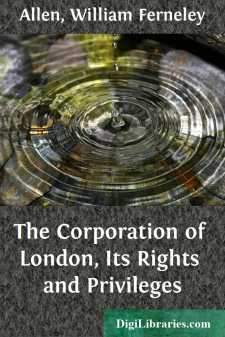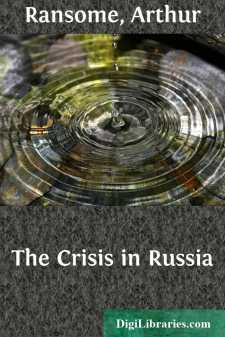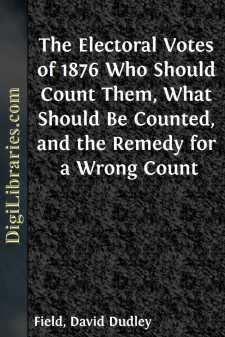Political Science
Political Science Books
Sort by:
CHAPTER I NATIONAL CONSCIOUSNESS I An empire the size of Europe setting out on her career of world history is a phenomenon of vast and deep enough import to stir to national consciousness the slumbering spirit of any people. Yet when you come to trace when and where national consciousness awakened, it is like following a river back from the ocean to its mountain springs. From the silt borne down on the...
more...
by:
Anonymous
CAUSES OF THE REBELLION, &c. &c. FELLOW SUBJECTS, It is always a bold undertaking in a private individual to become the advocate of a suffering people. It is peculiarly difficult at the present moment to be the advocate of the people of Ireland, because there are among them men who have taken the power of redress into their own hands, and committed acts of outrage and rebellion which no...
more...
by:
Henry Jones Ford
CHAPTER I. A TRANSITION PERIOD Politicians at Washington very generally failed to realize that the advent of President Hayes marked the dismissal of the issues of war and reconstruction. They regarded as an episode what turned out to be the close of an era. They saw, indeed, that public interest in the old issues had waned, but they were confident that this lack of interest was transient. They admitted...
more...
by:
Friedrich Engels
INTRODUCTION The history of the proletariat in England begins with the second half of the last century, with the invention of the steam-engine and of machinery for working cotton. These inventions gave rise, as is well known, to an industrial revolution, a revolution which altered the whole civil society; one, the historical importance of which is only now beginning to be recognised. England is the...
more...
The first historical notice of the City of London occurs in that portion of the Annals of Tacitus which treats of the insurrection of Boadicea. At that time it was a place much frequented by merchants, attracted partly by the natural advantages of the site, and partly by the vicinity of the Roman camp at Islington. It is stated that 70,000 persons, of both sexes and of all ages, were massacred by that...
more...
by:
Arthur Ransome
INTRODUCTION THE characteristic of a revolutionary country is that change is a quicker process there than elsewhere. As the revolution recedes into the past the process of change slackens speed. Russia is no longer the dizzying kaleidoscope that it was in 1917. No longer does it change visibly from week to week as it changed in 19l8. Already, to get a clear vision of the direction in which it is...
more...
by:
Max Farrand
THE FRENCH DECLARATION OF RIGHTS OF AUGUST 26, 1789, AND ITS SIGNIFICANCE. The declaration of "the rights of man and of citizens" by the French Constituent Assembly on August 26, 1789, is one of the most significant events of the French Revolution. It has been criticised from different points of view with directly opposing results. The political scientist and the historian, thoroughly...
more...
Who should Count them,What should be Counted, andThe Remedy for a Wrong Count. The electoral votes of 1876 have been cast. The certificates are now in Washington, or on their way thither, to be kept by the President of the Senate until their seals are broken in February. The certificates and the votes of thirty-four of the States are undisputed. The remaining four are debatable, and questions...
more...
by:
Walter Bagehot
There is a great difficulty in the way of a writer who attempts to sketch a living Constitution—a Constitution that is in actual work and power. The difficulty is that the object is in constant change. An historical writer does not feel this difficulty: he deals only with the past; he can say definitely, the Constitution worked in such and such a manner in the year at which he begins, and in a manner...
more...
HUMAN NATURE. Truths of the physical order may possess much external significance, but internal significance they have none. The latter is the privilege of intellectual and moral truths, which are concerned with the objectivation of the will in its highest stages, whereas physical truths are concerned with it in its lowest. For example, if we could establish the truth of what up till now is only a...
more...











